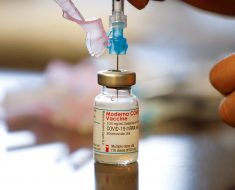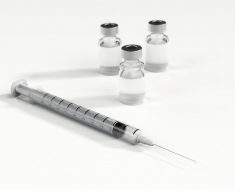The study was presented at the annual European Society of Human Reproduction and Embryology (ESHRE) meeting in Vienna. The study also claimed that those who undergo IVF have 27.1 per cent possibility of the procedure resulting in pregnancy.

A recent study states that the success rate for women undergoing vitro fertilisation (IVF) treatment has peaked with every one in four attempts resulting in pregnancy. It further claimed that those who undergo IVF have 27.1 per cent possibility of the procedure resulting in pregnancy.
In this process of fertilisation, an egg is taken from a woman’s ovaries and fertilised with a sperm in a laboratory. The fertilised egg is then reinserted into the woman’s womb.
However, according to study, those who undergo a procedure called intracytoplasmic sperm injection (ICSI), a treatment used in cases of male infertility, have a 24.3 per cent chance of conceiving.
The research assessed 800,000 IVF and ICSI treatment cycles performed in 2016, resulting in the birth of 165,000 babies. The study was presented at the annual European Society of Human Reproduction and Embryology (ESHRE) meeting in Vienna.
Dr Christian de Geyter, chair of the ESHRE’s European IVF Monitoring Consortium, said that the success rates for IVF and ICSI appear to have reached a peak.
“Success rates have stabilised although outcome in egg donation and with use of frozen embryos is still moving upwards. The success rates of IVF and ICSI treatments appear to have plateaued, popularity in the treatments which incorporate frozen embryos is on the rise. The biggest upwards movement, however, is from treatments with frozen eggs, which have been revolutionised by the widespread introduction of vitrification.” Dr de Geyter said.
Vitrification, a form of scientific technology, involves the freezing of an egg or embryo by cooling it at a fast pace. Frozen embryos are fertilised eggs which are stored until a later time, and then used to insert into the womb during fertility treatment.
According to an report in The Independent, Dr de Geyter said that he believes the peaking success rate of IVF and ICSI has been caused by a decrease in fresh embryo transfers and an increase in frozen embryo transfers.
Source: Read Full Article





